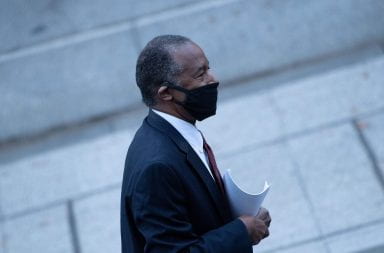Two years ago, Mia Yu traveled all the way from her home in Beijing and stepped onto American soil for the first time in her life. It was the beginning of what she hoped would be her journey to having a foot in two countries.
“If I had work opportunities both here and back home, I would choose to stay here,” said Yu, a second-year in math. “I think there are more opportunities here. In China, I know I could find a good job because my parents know people, but maybe it’s not based on how good I am but rather how they view my parents who connected me to the job.”
Like Yu, many international students apply to American universities in hopes of one day getting a job. Some are looking for economic opportunity; some are looking for the freedom they believe America has to offer; and some enjoy the cultural differences from their own countries.
But for all international students who want to stay and work in the U.S. after college, there is one thing they must all contend with: applying for the H-1B visa.
The H-1B visa is a legal document that allows companies to hire international students and professionals from all over the world to work and live in the U.S. A section of the Immigration and Nationality Act of 1965, the program was put in place by Congress to help companies and international workers aid American companies that might not be able to find the skills they need in the local workforce.
After attending small schools in China for most of her life, Yu realized she wanted a different experience for her college career.
“I found Ohio State on the U.S college rankings website and knew I wanted to go to a bigger school,” Yu said. Although Yu’s dream of attending a big university has come true with the certainty of her student visa, she worries about her post-graduation plans, even as a second-year student.
“I plan to go to graduate school after Ohio State, because I think a master’s degree will really help me find a good job and maybe after I can go to a big city like San Francisco, Los Angeles, or New York City,” Yu said. “But I think I will be upset if I don’t get the H-1B visa, because to stay here is my first choice.”
The H-1B visa program has its limitations, specifically the high demand that hinders many applicants from receiving it. In April 2017, the threshold for visa applicants hit a cap in four days.
Although companies are allowed to pay for the application, there is only a limited number to be approved. Each year, 85,000 H-1B visas are available for foreign professionals. Of those, 20,000 are set aside for international students like Yu who are graduating from American educational institutions.
Another issue facing international students is the Trump administration’s current push to have Congress reform the program so American companies are forced to hire more domestic workers.
Despite having the qualifications to apply for a work visa, Yu is not confident that she will get one immediately, which could mean a flight back home to Beijing.

Mia Yu poses for a photo after discussing her post-graduation plans. Credit: Shanti Lerner | Lantern reporter
“Usually there are more applicants than visas that are given away,” she said. “It’s like a lottery, it all depends on your luck.”
Iris Cao, an Ohio State international student alumna from China who graduated in 2016, also is about to approach this same obstacle.
Cao said she came to Ohio State to explore more abundant work opportunities. She currently works at Arizona State University as a coordinator for clubs and organizations, but has yet to acquire an H-1B visa.
Cao is in the U.S. under the Optional Practical Training legislation that is set in place by the government to allow newly graduated international students to work for one year without having to apply for a visa.
“That will be the conversation for me next year, to be in communication with my employer, to see if they are willing to sponsor me,” Cao said. “My challenge is: Will the university I work for be willing to invest or go through the whole process for me next year? If they are willing, then the next question is: Will I get approved in time for me to continue on with my employment?”
Cao said the visa system does not give applicants a fair chance at staying in the U.S.
“If your time is up, then you have to go home,” she said.



